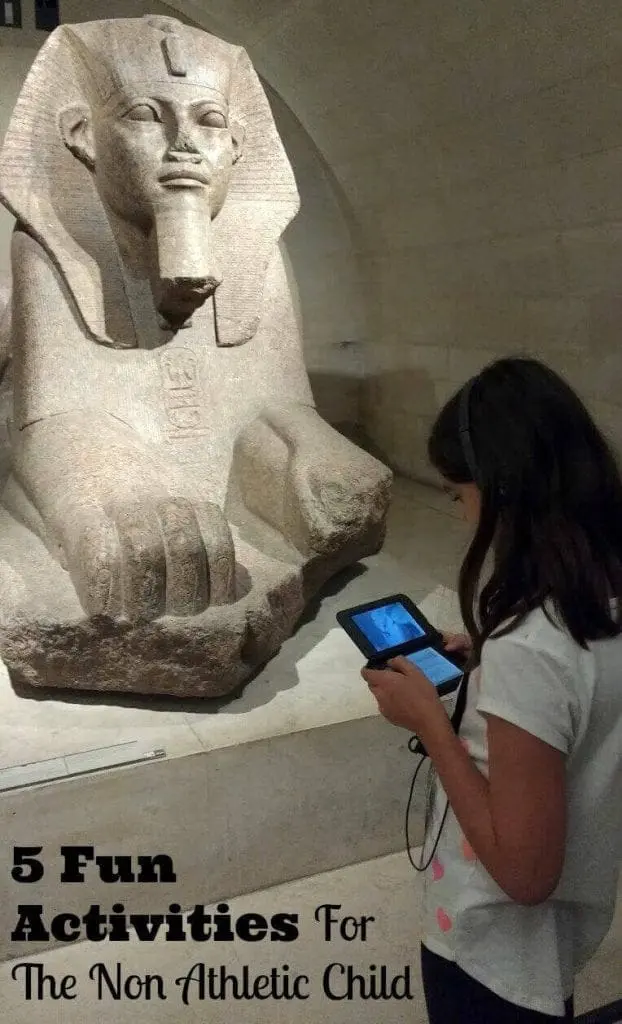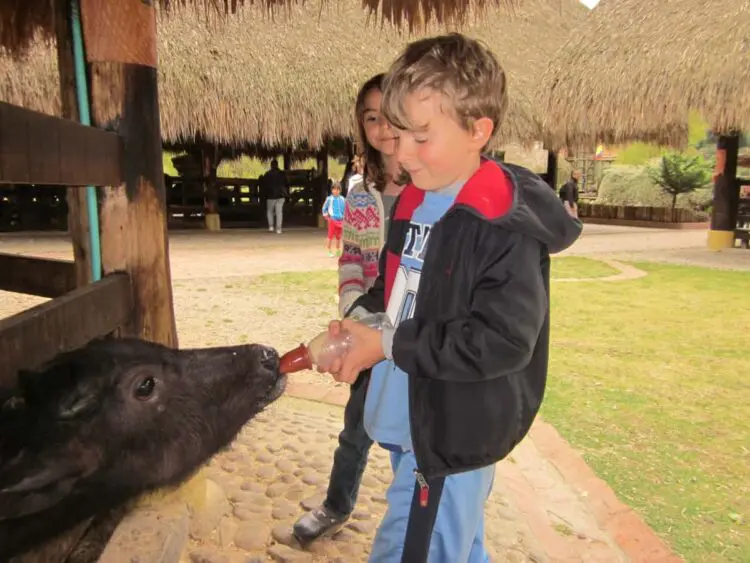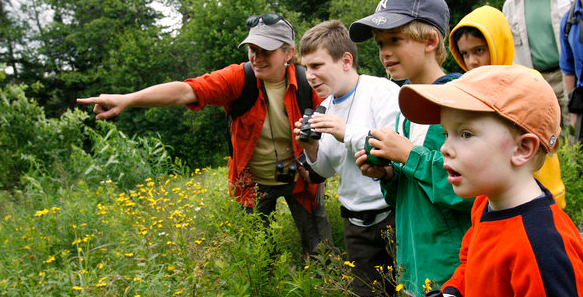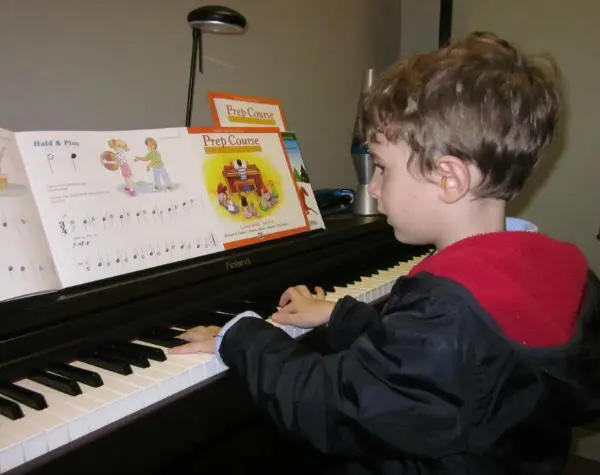If you have a child that is not athletic it is important to find activities that will keep both their mind and body active. While some children are naturally interested in playing sports, others just don’t like sports. It is a good idea to expose your child to lots activities, both athletic and non-athletic so they can find their niche and pursue their passion. Here are five suggestions of activities for a non-athletic child to keep them learning and growing physically and mentally. I hope you enjoy these non sport extracurricular activities.
What are extracurricular activities?
First, you may want an extracurricular activities definition. Extracurricular activities are structured programs, clubs, or hobbies that children and teens participate in outside of regular school hours. They cover a wide range of interests and skills beyond the typical academic curriculum. Common examples include sports teams, music and art programs, theater groups, student government, debate clubs, and special interest groups like robotics, science clubs, and language societies. These activities provide an opportunity for students to explore personal interests, develop new skills, make friends, and gain experiences that can shape their personal growth and future aspirations.
Non-Athletic Extracurricular Activities For Kids

Extracurricular activities are invaluable for all children, especially those who may not be drawn to athletics. Non-sport activities, such as art, music, theater, robotics, or debate, provide kids with diverse ways to explore their interests and build confidence in a supportive environment. These activities help kids discover and develop unique talents, improve problem-solving and communication skills, and build friendships with peers who share their interests. By fostering a sense of belonging and accomplishment, extracurriculars empower children to grow into well-rounded, confident individuals with skills and passions that extend far beyond academics or sports.
Get a Museum Membership
Many people don’t realize how much walking you do when you visit a museum. Some museums even offer the opportunity to spend the night and get an in depth look at all the exhibits. A visit to an art, science, or history museum will definitely keep a child’s mind and body active all day long. Once you find out what interests them, can start or join a school club around that particular field.
Go On a Nature Hike
By taking your child on a nature hike they can explore the world around them in many different ways. From examining things with a magnifying glass to spotting different species of birds. They will also enjoy a chance to take unique photographs. A nature hike helps a child ask questions, be creative, and keep active for an entire day.
Grow a Garden
When growing a garden, seedlings can be started indoors and later transferred to an outdoor garden in late spring. Garden work is fun and can also help a child work up a sweat. There are many components to help with from planning the garden, to preparing the garden beds, to planting, to weeding, watering, and harvesting. Teaching kids gardening will provide them with a life long skill.
As the flowers or vegetables grow, kids may enjoy examining the leaves under a microscope. Children can compare cheek skin cells to plant cells as well as make their own models of plant and animal cells using clay or other mediums.
Learn to Play an Instrument
If you are looking for a long term activity for your non-athletic child, consider getting them involved with instrument lessons. As your child practices their instrument and gets better they may want to join a band or orchestra as a way to bond with other kids that are possibly non-athletic.
Community Service
Many organizations let families volunteer and if you find the right cause, your child could make a difference and feel a sense of accomplishment. Environmental organizations, animal shelters, farms, and churches are a great place to start when looking for a volunteer activity for your non-athletic child. The volunteer opportunities may also lead them to meet new people and become interested in other new activities. It can be a great way to encourage leadership skills.

More Extracurricular Activities Examples
Here are some examples of extracurricular activities that cater to various interests and skill levels:
Creative and Performing Arts
- Art Club
- Choir
- Drama/Theater Club
- Dance Team
- Photography Club
- Band or Orchestra
- Film Making Club
Academic and STEM
- Robotics Club
- Science Olympiad
- Math Club
- Debate Team
- Coding Club
- Astronomy Club
- Chess Clubs
- Foreign Language Club
Social and Leadership
- Student Government
- Model United Nations
- Volunteer Clubs (e.g., Habitat for Humanity, local charities)
- Environmental Club
- Cultural Awareness Clubs
- Peer Tutoring
Sports and Physical Activities
- Track and Field
- Swimming Team
- Martial Arts
- Gymnastics
- Rock Climbing Club
- Dance Classes
- Archery Club
Miscellaneous and Special Interests
- Book Club
- Gardening Club
- Cooking/Baking Club
- Writing or Journalism Club
- Animal Rights or Pet Care Club
- Anime Club
- Business or Investment Club
Conclusion
Extracurricular activities offer immense value to children’s growth, helping them to develop essential life skills, discover passions, and build meaningful friendships outside the classroom. These activities foster personal growth, resilience, teamwork, and responsibility—qualities that are vital for success in both academic and personal life. Engaging in extracurriculars also provides a productive outlet for energy, creativity, and self-expression, which boosts confidence and can reduce stress. By encouraging kids to participate in activities that excite and challenge them, we are giving them opportunities to grow into well-rounded individuals better prepared for future challenges and successes.
Having a child that doesn’t enjoy sports doesn’t mean that your child can’t be involved in activities or be active. Even if your child is athletic, they need to be physically active to grow strong bones and muscles for life. By joining volunteer organizations, starting a new hobby, or visiting a museum, your child can be active and healthy. What are your favorite activities for kids who don’t like to play sports? Does your child have a favorite extracurricular activity?
Related posts:
10 Active Play Ideas For Toddlers
5 Boredom Buster Sidewalk Chalk Ideas Kids Will Love



Christina says
I love this article! I think people sometimes forget that not all children are athletic and not all children start sports at 3. It’s nice to see activities that can appeal to those who aren’t into sports.
Mary Beth Elderton says
My son was never into team/ball sports. He did earn a second degree black belt and “master” the guitar.
Thahani says
Great suggestions! It’s wonderful to see activities encouraging creativity and fun for non-athletic kids. These ideas provide excellent ways for children to explore new interests and build confidence.
G Aditya says
Love this list! It’s so important to find activities that fit each child’s interests. My non-athletic kiddo has a blast with art classes and coding clubs. These ideas will definitely inspire some new adventures. Thanks for sharing.
Shaheer Ali Khan says
Thank you for such a thoughtful and comprehensive guide for non-athletic extracurriculars! It’s refreshing to see so many unique options that encourage creativity, curiosity, and community involvement. Activities like gardening and community service are fantastic ways for kids to learn hands-on skills and make a positive impact. My child has really enjoyed exploring nature through photography, and it’s been wonderful to watch their excitement grow with each new discovery on our hikes.
It’s inspiring to see options that truly cater to all interests—these ideas are not only engaging but also valuable for developing lifelong skills. Looking forward to trying some of your suggestions!
Eva says
Thank you for sharing these wonderful activities! It’s so important to recognize that not every child thrives in traditional sports. I love how you’ve highlighted creative and engaging alternatives that can help build confidence and skills in non-athletic kids. Can’t wait to try some of these with my child!